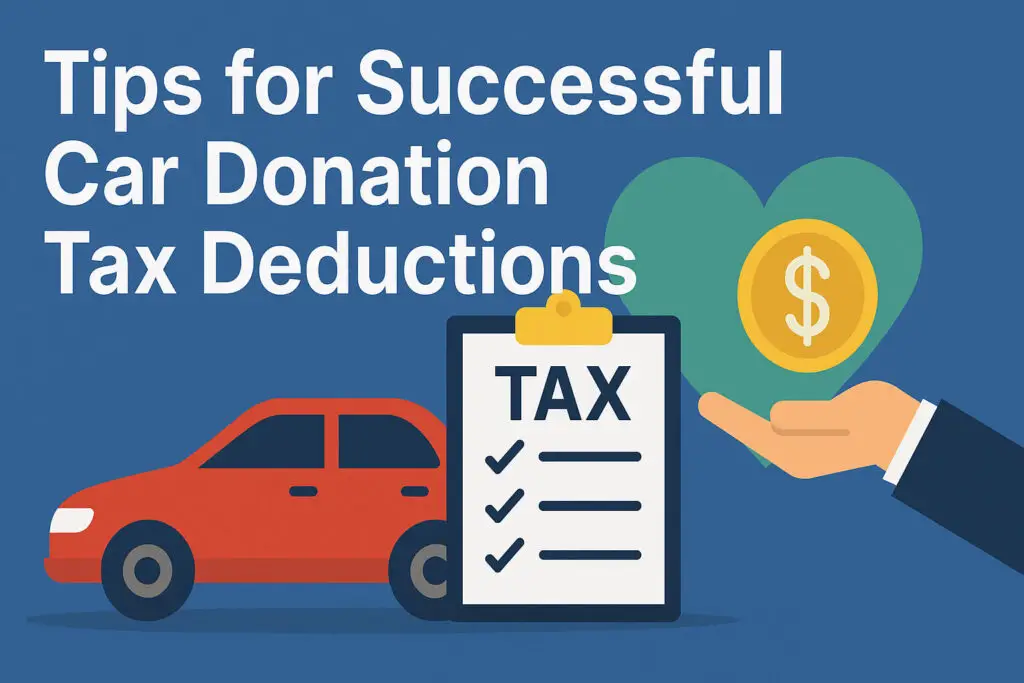In today’s digital age, information is just a few clicks away, and curiosity often leads us to inquire about the cars registered to our address. This comprehensive guide will shed light on the importance of knowing the vehicles associated with your address, how to access this information, and the legal and ethical considerations surrounding it. Whether you have safety concerns, need to verify ownership, or are curious about the legal implications, we’ve got you covered.
I. Introduction
A. The Importance of Knowing Cars Registered to Your Address
Understanding the vehicles registered to your address goes beyond mere curiosity; it plays a pivotal role in ensuring your safety, security, and peace of mind. Here’s why it matters:
- Identifying Unauthorized Registrations: One of the foremost reasons for wanting to know the cars registered to your address is to identify any unauthorized registrations. This scenario can occur when someone uses your address without your knowledge or consent to register a vehicle. These unauthorized registrations can lead to various complications, including legal issues and even security concerns.
- Safeguarding Your Property and Privacy: Unauthorized registrations can be a red flag for potential fraudulent activities or misuse of your address. By being aware of all vehicles linked to your address, you can take immediate action if you detect any suspicious or unauthorized entries. This proactive approach helps protect your property and personal information, ensuring that your address is not misused for fraudulent purposes.
- Ownership Verification: In certain situations, such as property transactions or disputes, verifying ownership of vehicles registered to your address becomes essential. Accurate ownership information can be crucial for legal and financial transactions, ensuring that you are dealing with the correct parties involved.
- Resolving Legal and Financial Issues: Discovering cars registered to your address can help you address various legal and financial issues. For example, if you receive parking violations or debt collection notices for vehicles you don’t own, knowing the actual registrants can assist in resolving these issues promptly and effectively.
- Informed Decision-Making: Knowledge is power, and having a comprehensive understanding of the cars registered to your address empowers you to make informed choices. Whether you’re considering property investments, evaluating your neighborhood’s safety, or simply seeking clarity about the vehicles in your vicinity, this information equips you to make decisions that align with your interests and priorities.
B. Personal Anecdote: Why This Matters
Let’s paint a vivid picture to illustrate the significance of this topic through a personal anecdote:
Imagine you’ve just returned home after a long day at work, looking forward to a peaceful evening. As you approach your driveway, you notice an unfamiliar car parked there. Your heart skips a beat, and a wave of uncertainty washes over you. You didn’t expect any guests, and you certainly didn’t give anyone permission to use your property.
In this moment, your immediate concern is whether this mysterious vehicle poses a security threat. Questions race through your mind: Is someone trespassing on your property? Could this be a stolen vehicle? Are there individuals with ill intentions nearby?
This scenario is not just a hypothetical situation; it’s a real-life example of the unexpected challenges homeowners can face. Knowing the cars registered to your address would provide you with instant clarity in this situation. You could quickly determine whether the vehicle is authorized to be on your property or if it’s a potential security risk.
Moreover, your ability to act swiftly and decisively in such situations can make all the difference. Whether it’s contacting law enforcement, reporting unauthorized use of your property, or simply approaching the situation with confidence, having knowledge about the vehicles registered to your address gives you peace of mind and empowers you to protect your home and loved ones.
In essence, this personal anecdote underscores that knowing the cars registered to your address isn’t just about information; it’s about security, peace of mind, and the ability to respond effectively to unexpected circumstances. It’s a crucial aspect of responsible homeownership and ensuring that your property remains a safe haven.
II. Understanding Vehicle Registration
III. Accessing Vehicle Registration Information
A. Public Records and Databases
- Online Databases: In the digital age, accessing vehicle registration information has become more convenient through online databases. These databases compile registration data from various sources and make it accessible to the public. Here’s how online databases work:
- User-Friendly Interfaces: Online databases typically feature user-friendly interfaces that allow individuals to search for vehicle registration information by entering specific details. Common search criteria include license plate numbers, VINs, or addresses.
- Accessibility: These online services are accessible from any internet-connected device, making it easy for individuals to perform searches from the comfort of their homes.
- Paid and Free Services: Online databases may offer both paid and free services. While basic information about a vehicle’s registration may be available for free, more detailed reports often require a fee. Paid services may provide comprehensive data, including vehicle history and ownership records.
- Government Agencies: For those who prefer an official and authoritative source, government agencies like the Department of Motor Vehicles (DMV) offer access to vehicle registration data. However, accessing this information through government agencies typically involves specific procedures and may require fees or official requests.
- Official Records: Government agencies maintain official records of vehicle registrations within their respective jurisdictions. These records are considered highly reliable and can provide accurate and up-to-date information.
- Specific Procedures: Accessing vehicle registration information from government agencies usually requires individuals to follow specific procedures, which may include completing forms, providing valid reasons for the request, and paying associated fees.
B. Legal Considerations and Privacy
- Legal Access to Information: While it is possible to access vehicle registration information, it is crucial to operate within the legal framework governing such access. Unauthorized or illegal access to this information can have severe consequences, including legal repercussions. Here are some legal considerations:
- Privacy Laws: Privacy laws protect individuals’ personal information, including vehicle registration data. Unauthorized access to this data can violate privacy laws and result in legal action.
- Permissible Reasons: Access to vehicle registration information is typically permitted for specific reasons, such as verifying ownership, addressing legal issues, or ensuring road safety. Using this information for unauthorized purposes, such as stalking or harassment, is illegal and unethical.
- Official Requests: Government agencies may require individuals to make official requests for access to registration data. These requests are subject to review and approval, and the agency may grant access based on the requester’s legitimate need.
- Protecting Personal Information: While you may have a legitimate reason to access vehicle registration information, it’s equally important to protect your personal information and adhere to legal boundaries. Here are some precautions to consider:
- Secure Your Own Data: Be mindful of the data you provide when accessing vehicle registration information online. Ensure that your personal information remains secure and is not misused.
- Authorized Purposes: Only use the information you obtain for authorized purposes, such as verifying ownership or addressing legal matters. Avoid sharing or using the information inappropriately.
- Respect Privacy: Respect the privacy of others when accessing their vehicle registration data. Do not misuse this information or engage in any activities that violate privacy laws or ethical standards.
In summary, accessing vehicle registration information is possible through online databases or government agencies, each with its own set of procedures and considerations. It is essential to operate within the boundaries of the law and respect privacy when using this information for legitimate purposes. Unauthorized access can lead to legal repercussions, so it’s crucial to be aware of the legal framework governing such access.
IV. Reasons for Wanting to Know
A. Safety and Security Concerns
One of the foremost reasons for wanting to know the cars registered to your address is to address safety and security concerns effectively. Here’s why this aspect is crucial:
- Unauthorized Registrations: Unauthorized registrations can be a cause for alarm. When you become aware of vehicles registered to your address without your knowledge or consent, it can raise questions about who has access to your property. This is especially concerning if you are uncertain about the intentions of the registrants.
- Immediate Action: Knowledge of unauthorized registrations empowers you to take immediate and informed action. You can investigate the situation further, contact law enforcement if necessary, and ensure the security of your property and loved ones.
- Preventative Measures: In some cases, knowing about unauthorized registrations can lead to the implementation of preventative measures, such as enhancing home security, installing surveillance systems, or reinforcing access control. These steps contribute to a safer living environment.
B. Verifying Ownership
Verifying ownership of vehicles registered to your address is essential, particularly in legal and financial contexts. Here’s why it matters:
- Property Transactions: When you are involved in property transactions, such as buying or selling a home, accurate information about vehicles registered to your address is vital. It ensures that you are dealing with the correct property owner and that there are no discrepancies that could complicate the transaction.
- Legal and Financial Transactions: Beyond property transactions, accurate ownership information is crucial for various other legal and financial transactions. This can include contracts, leases, or disputes where having the correct information about vehicle ownership is necessary to protect your interests.
C. Legal and Financial Implications
Understanding the cars registered to your address can have significant legal and financial implications, including:
- Parking Violations: Discovering cars registered to your address can help resolve issues related to parking violations. If these violations were committed by individuals not associated with your household, you can provide evidence to authorities to rectify the situation and prevent unjust fines.
- Debt Recovery: In unfortunate scenarios, individuals may misuse your address for fraudulent purposes, such as taking out loans or credit cards. If these debts become associated with your address, it can have detrimental consequences for your credit history and financial standing. By knowing the cars registered to your address, you can identify any fraudulent activity and take steps to recover your financial well-being.
In summary, the reasons for wanting to know about the vehicles registered to your address are multifaceted. It includes addressing safety and security concerns, verifying ownership for legal and financial transactions, and mitigating the legal and financial implications of unauthorized registrations. By having this information at your disposal, you can make informed decisions, protect your interests, and maintain a secure living environment.
V. How to Find Cars Registered to Your Address
A. Online Search Tools
- Popular Websites: Several online platforms offer user-friendly tools that allow you to search for cars registered to a specific address. These websites aggregate data from various sources, making it convenient for individuals seeking this information.
- Ease of Use: Popular websites offering this service often have intuitive interfaces. You can start by entering your address or other relevant details, such as a license plate number or VIN.
- Comprehensive Data: These platforms strive to provide comprehensive data, including details about registered vehicles, their owners, and related information. You can expect to receive a detailed report.
- Paid and Free Options: Online search tools may offer both paid and free options. While basic information is often available at no cost, more detailed reports may require a fee. Paid services may include additional features such as vehicle history and ownership records.
- Search Techniques: To maximize the effectiveness of your search, consider employing effective search techniques:
- Enter Accurate Information: Ensure that you provide accurate and complete information when conducting your search. This includes precise address details and any available identifiers, such as license plate numbers.
- Use Filters: Many online search tools offer filters that allow you to narrow down your search results. Utilize these filters to refine your query and obtain more precise information.
B. Contacting Local Authorities
- Official Sources: If you prefer an official and authoritative approach, consider reaching out to local government agencies, such as your state’s Department of Motor Vehicles (DMV) or law enforcement agencies. Here’s how you can go about it:
- DMV: Contact your local DMV and inquire about the process for accessing vehicle registration information. They will guide you on the specific procedures and requirements.
- Law Enforcement: Local law enforcement agencies may also assist you in accessing this information when there is a legitimate need, such as a legal matter or security concern.
- Legal Channels: Accessing vehicle registration data through local authorities involves following legal channels. Be prepared to provide a valid reason for your request and adhere to any applicable fees or procedures.
C. Private Investigator Services
- Complex Cases: In more complex situations where traditional methods may not yield the desired results, or if you encounter obstacles in obtaining information, you may consider hiring private investigator services.
- Specialized Expertise: Private investigators specialize in gathering information within legal boundaries. They have the expertise and resources to access vehicle registration data and provide you with comprehensive reports.
- Legal Compliance: It’s important to note that reputable private investigators operate within the confines of the law. They ensure that any information they obtain is acquired through legal means and is admissible in legal proceedings.
VI. Frequently Asked Questions (FAQs)
A. Can I Find Out Who Owns a Car Registered to My Address?
Yes, you can typically find out who owns a car registered to your address by accessing public records or databases. However, ensure you do so within the confines of the law and respect privacy regulations.
B. How Can I Check if My Address Has Unauthorized Registrations?
You can use online search tools or contact local authorities to check for unauthorized registrations associated with your address. Both methods can help you identify any vehicles registered without your knowledge.
C. Is It Legal to Search for Cars Registered to My Address?
Yes, it is legal to search for cars registered to your address, provided you do so in compliance with relevant laws and regulations. Respect privacy laws and ensure your actions align with legal boundaries.
D. What Should I Do if I Find Unauthorized Registrations?
If you discover unauthorized registrations, it’s essential to take action. Contact your local law enforcement or the Department of Motor Vehicles (DMV) for guidance on how to address the issue and rectify any potential legal or security concerns.
E. Are There Any Privacy Concerns When Searching for Vehicle Registration Information?
Yes, there are privacy concerns. Always be mindful of protecting your personal information when accessing vehicle registration data. Additionally, ensure that your actions align with legal guidelines and respect privacy regulations.
F. Can Someone Else Check the Cars Registered to My Address?
In most cases, others can access vehicle registration information associated with your address, but they must do so legally and responsibly. Accessing this data without authorization or for unauthorized purposes is both illegal and unethical.
G. Are There Any Costs Associated with Accessing This Information?
Some online services may charge fees for access to detailed information. Government agencies, such as the DMV, may have nominal fees for official requests. Be aware of potential costs associated with your chosen method of accessing data.
H. How Can I Protect My Address from Unauthorized Registrations?
To protect your address from unauthorized registrations, take proactive steps. Strengthen home security measures, monitor vehicle registrations associated with your property, and promptly address any discrepancies or concerns to prevent misuse of your address.
I. Can I Remove My Address from a Vehicle Registration?
You cannot directly remove your address from a vehicle registration. However, if you encounter unauthorized registrations or issues related to your address, addressing these matters through legal channels can help rectify such issues and safeguard your interests.
VII. Case Studies
A. Real-Life Stories of People Discovering Cars Registered to Their Address
- Case Study 1: Unfamiliar Vehicle Raises ConcernsScenario: Sarah, a homeowner, returned from a vacation to find an unfamiliar car parked in her driveway. Alarmed and unsure about the vehicle’s presence, she decided to investigate.Outcome: By accessing vehicle registration information, Sarah identified the owner of the car and learned that it was mistakenly parked on her property by a neighbor’s guest. She was able to resolve the situation amicably, preventing any potential security concerns.
- Case Study 2: Property Transaction VerificationScenario: John was in the process of purchasing a new home. As part of his due diligence, he wanted to verify the accuracy of property records, including vehicles registered to the address.Outcome: By confirming the vehicles registered to the property, John ensured that there were no discrepancies that could complicate the real estate transaction. This verification provided him with peace of mind and confidence in the property purchase.
B. Outcomes and Solutions
- Case Study 1 Outcome: Prompt ResolutionOutcome: In Sarah’s case, knowing the cars registered to her address allowed her to promptly resolve the situation without escalating it further. By contacting the vehicle owner and explaining the situation, they cooperatively resolved the issue, and the car was moved from her property. Sarah’s quick action ensured her property’s security and maintained a harmonious neighborhood atmosphere.
- Case Study 2 Outcome: Informed Property PurchaseOutcome: For John, verifying the vehicles registered to the property he intended to purchase was a proactive step. It helped him identify and address any potential issues before finalizing the real estate transaction. This diligence ensured a smooth and secure property purchase, preventing future disputes or complications related to vehicle ownership.
In summary, these real-life case studies illustrate how knowing the cars registered to their address has practical benefits. From resolving unexpected situations to ensuring smooth property transactions, having access to this information empowers individuals to make informed decisions and take action when necessary. These examples underscore the importance of understanding vehicle registration data and its real-world applications.
VIII. Legal Considerations and Ethical Practices
A. Laws and Regulations Surrounding Access to Vehicle Registration Data
- Legal Framework: Accessing vehicle registration data is subject to a legal framework that varies by jurisdiction. In the United States, each state has its own set of laws and regulations governing access to this information. It’s crucial to familiarize yourself with the specific rules and requirements in your area.
- Permissible Reasons: Typically, individuals are allowed to access vehicle registration data for specific and legitimate reasons, such as verifying ownership, addressing legal matters, or ensuring road safety. Using this information for unauthorized or unethical purposes may violate privacy laws and regulations.
- Official Sources: Government agencies like the Department of Motor Vehicles (DMV) are considered official sources of vehicle registration data. Accessing data through these sources often involves following established procedures and may require payment of fees.
B. Ethical Use of Such Information
- Respect Privacy: When accessing vehicle registration data, it’s essential to respect the privacy of individuals associated with the vehicles. Avoid sharing or misusing this information for unauthorized purposes, such as harassment or stalking.
- Authorized Use: Use the information you obtain for authorized and legitimate purposes only. This includes verifying ownership, addressing legal matters, or ensuring the security of your property. Unauthorized use can lead to ethical and legal issues.
- Transparency: If you need to access vehicle registration data as part of a transaction or legal process, be transparent about your intentions and follow proper procedures. Honesty and transparency are key ethical considerations.
C. Consequences of Unauthorized Access
- Legal Repercussions: Unauthorized access to vehicle registration data can result in legal consequences. Depending on the jurisdiction, this may include fines, penalties, or even criminal charges. It’s essential to operate within the boundaries of the law.
- Financial Penalties: In addition to legal consequences, there may be financial penalties associated with unauthorized access. These penalties can range from fines to civil liabilities, depending on the severity of the violation.
- Reputation Damage: Ethical considerations extend to your reputation. Engaging in unauthorized or unethical practices can damage your personal or professional reputation and credibility.
In summary, understanding the legal framework, adhering to ethical practices, and being aware of the potential consequences of unauthorized access are essential when dealing with vehicle registration data. Operating within the confines of the law and respecting privacy rights are paramount to maintaining integrity and accountability in accessing this information.
IX. Protecting Your Address and Vehicle Registrations
A. Practical Steps to Safeguard Your Information
- Strengthening Home Security: Enhancing the security of your home can deter unauthorized access and protect your address. Consider these practical steps:
- Install security cameras: Surveillance cameras can monitor your property and provide evidence in case of unauthorized access.
- Upgrade locks and doors: Ensure that your doors are equipped with secure locks and consider reinforcing entry points.
- Use motion-activated lighting: Outdoor lighting that activates upon motion can deter potential intruders.
- Secure windows: Install window locks or alarms to prevent unauthorized entry.
- Monitoring Vehicle Registrations: Regularly monitoring vehicle registrations associated with your address can help you identify and address any discrepancies or unauthorized registrations. Here’s how:
- Use online tools: Utilize online search tools to check for vehicles registered to your address. Set up alerts to receive notifications of any changes.
- Verify property records: Cross-reference property records with vehicle registrations to ensure accuracy.
- Maintain records: Keep records of vehicles registered to your address, including license plate numbers and ownership details.
B. Legal Measures to Prevent Unauthorized Registrations
- Know Your Rights: Familiarize yourself with your rights and responsibilities regarding vehicle registrations linked to your address. Understand the legal framework in your jurisdiction, including the process for addressing unauthorized registrations.
- Report Unauthorized Registrations: If you discover vehicles registered to your address without your consent or knowledge, promptly report the situation to local law enforcement and the Department of Motor Vehicles (DMV). Provide them with all relevant information and follow their guidance on resolving the issue.
- Addressing Fraudulent Activity: In cases of fraudulent activity where your address is misused, take legal action to protect your interests. This may involve working with law enforcement to investigate the fraudulent activity and clear your name from any associated financial obligations.
- Legal Assistance: Consult legal professionals, such as attorneys with expertise in property and privacy matters, if you encounter persistent issues related to unauthorized registrations. They can provide guidance on legal remedies and recourse.
- Documentation: Maintain thorough documentation of any communications, reports, or actions taken in response to unauthorized registrations. Proper documentation can be valuable in legal proceedings.
X. Conclusion
A. Recap of Key Takeaways
As we conclude this comprehensive guide, let’s recap the key takeaways to empower you with the knowledge you need regarding cars registered to your address:
- Knowing the cars registered to your address can have significant implications for your safety, security, and legal well-being.
- Understanding vehicle registration is essential, as it involves documenting ownership and identifying details with relevant authorities.
- Accessing vehicle registration information can be done through online tools, local government agencies, or private investigator services.
- Legal and ethical considerations are paramount when accessing this information, and unauthorized access can have serious consequences.
- Protecting your address and vehicle registrations involves practical steps to strengthen home security and monitoring registrations, as well as knowing your legal rights and taking appropriate legal measures when necessary.
B. Empowering Readers to Make Informed Choices
Our aim throughout this guide has been to empower you with the knowledge and resources to make informed choices when it comes to vehicles registered to your address. By understanding the importance of this information and following legal and ethical practices, you can navigate this aspect of your personal and property-related data responsibly and effectively.
In conclusion, staying informed and proactive regarding vehicles registered to your address is not just a matter of curiosity; it’s a matter of safeguarding your well-being and security. We encourage you to use this knowledge wisely and responsibly, always respecting privacy rights and legal boundaries. Stay informed, stay secure, and make informed choices.









